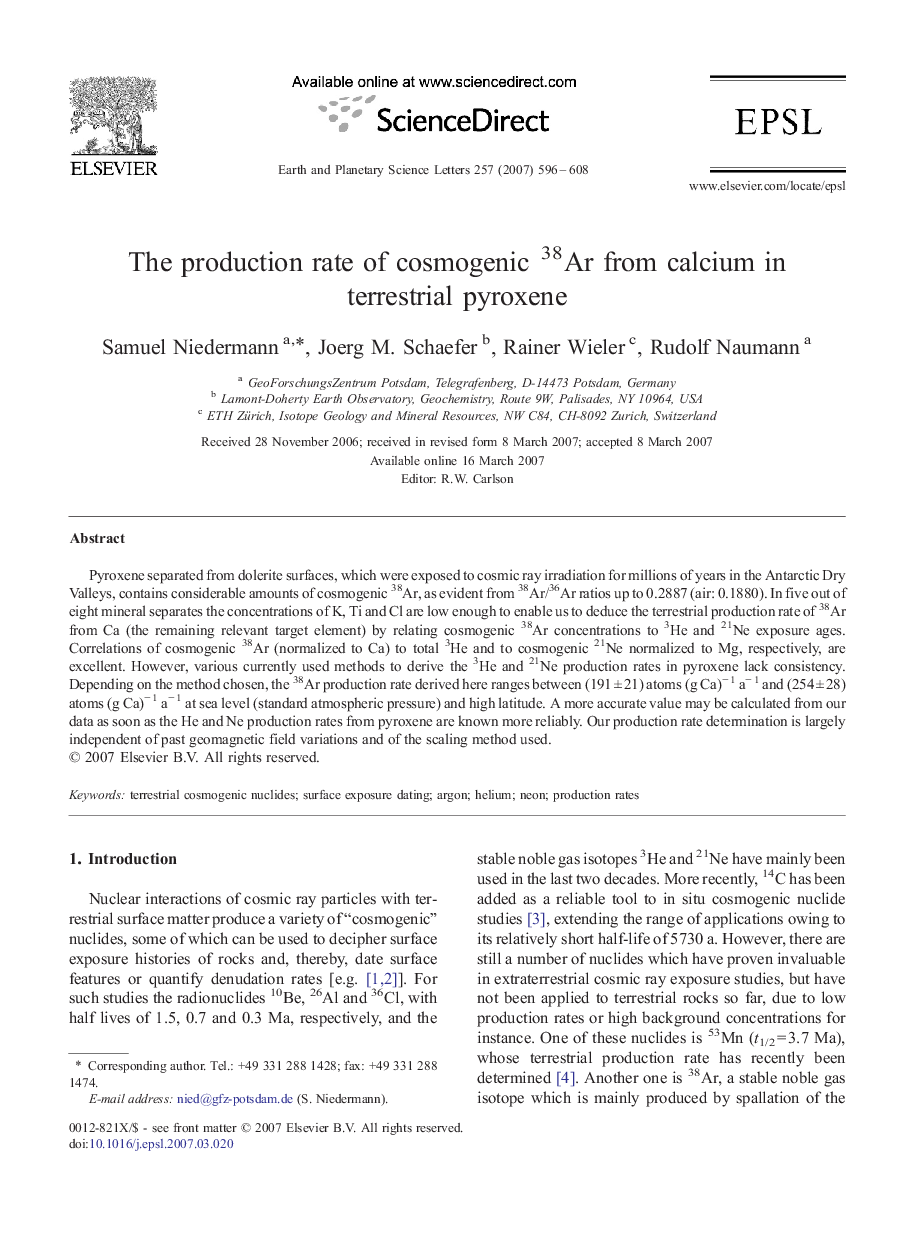| کد مقاله | کد نشریه | سال انتشار | مقاله انگلیسی | نسخه تمام متن |
|---|---|---|---|---|
| 4680381 | 1634920 | 2007 | 13 صفحه PDF | دانلود رایگان |

Pyroxene separated from dolerite surfaces, which were exposed to cosmic ray irradiation for millions of years in the Antarctic Dry Valleys, contains considerable amounts of cosmogenic 38Ar, as evident from 38Ar/36Ar ratios up to 0.2887 (air: 0.1880). In five out of eight mineral separates the concentrations of K, Ti and Cl are low enough to enable us to deduce the terrestrial production rate of 38Ar from Ca (the remaining relevant target element) by relating cosmogenic 38Ar concentrations to 3He and 21Ne exposure ages. Correlations of cosmogenic 38Ar (normalized to Ca) to total 3He and to cosmogenic 21Ne normalized to Mg, respectively, are excellent. However, various currently used methods to derive the 3He and 21Ne production rates in pyroxene lack consistency. Depending on the method chosen, the 38Ar production rate derived here ranges between (191 ± 21) atoms (g Ca)− 1 a− 1 and (254 ± 28) atoms (g Ca)− 1 a− 1 at sea level (standard atmospheric pressure) and high latitude. A more accurate value may be calculated from our data as soon as the He and Ne production rates from pyroxene are known more reliably. Our production rate determination is largely independent of past geomagnetic field variations and of the scaling method used.
Journal: Earth and Planetary Science Letters - Volume 257, Issues 3–4, 30 May 2007, Pages 596–608